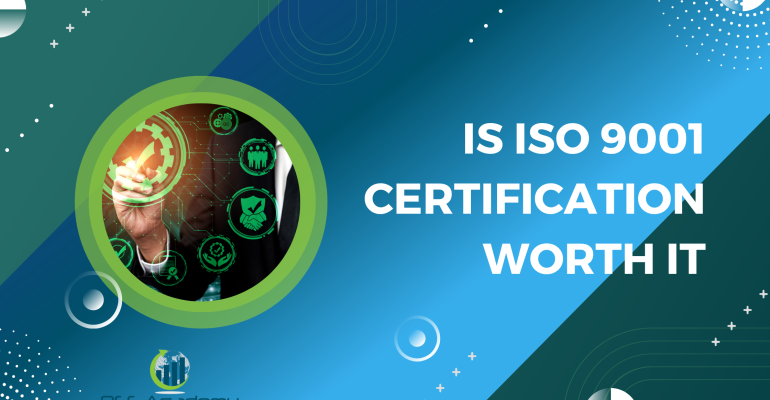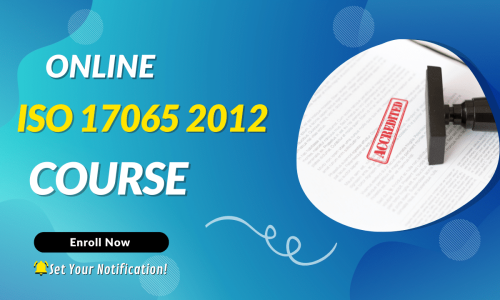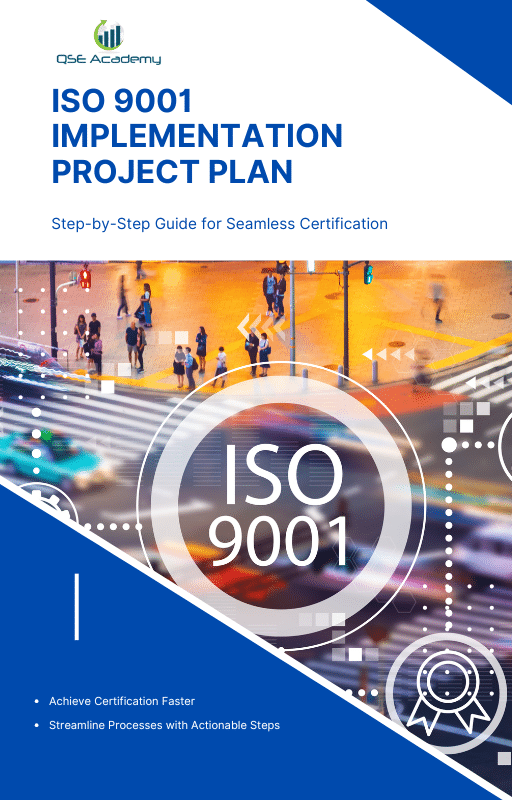Is ISO 9001 certification worth it?
Is ISO 9001 certification worth it?
If you’ve ever wondered whether ISO 9001 certification is worth it, you’re not alone. Many businesses, from small startups to global corporations, consider getting certified but hesitate because they’re unsure if the effort, time, and cost will really pay off.
On one hand, ISO 9001 certification is known for improving efficiency, boosting customer trust, and opening doors to new business opportunities. On the other hand, the certification process requires time, resources, and a commitment to maintaining quality standards. So, is it really worth it?
In this article, we’ll break it all down—what ISO 9001 certification involves, the real benefits it offers, potential challenges, and which businesses will get the most value from it. By the end, you’ll have a clear answer to the big question: Is ISO 9001 certification worth it for your company? Let’s dive in!
What is ISO 9001 Certification?
Before we decide if ISO 9001 certification is worth it, let’s take a step back and understand what it actually is.
ISO 9001 is an internationally recognized standard for quality management systems (QMS). In simple terms, it’s a framework that helps businesses improve efficiency, maintain consistent quality, and enhance customer satisfaction. It’s not just about passing audits—it’s about building a structured, reliable way of working that helps businesses grow.
Why Do Companies Get ISO 9001 Certification?
Businesses pursue ISO 9001 certification for a variety of reasons, including:
✅ Better Process Control – It helps companies set up structured processes, reducing errors and inefficiencies.
✅ Increased Customer Trust – Many clients and suppliers prefer working with ISO 9001-certified businesses because it guarantees quality and reliability.
✅ Compliance with Industry Requirements – In certain industries, ISO 9001 certification is worth it because it’s a requirement for contracts and legal compliance.
✅ Competitive Advantage – It sets businesses apart from competitors who aren’t certified.
What Does the Certification Process Involve?
Some people hesitate to pursue certification because they assume it’s overly complicated. While it does take effort, the process can be broken down into a few key steps:
1️⃣ Gap Analysis – Reviewing current processes to see what needs improvement.
2️⃣ Implementing a QMS – Developing a structured system that aligns with ISO 9001 requirements.
3️⃣ Employee Training – Ensuring staff understands quality processes and their roles in maintaining them.
4️⃣ Internal Audits – Checking for compliance before the official audit.
5️⃣ Certification Audit – A third-party certification body assesses whether the business meets ISO 9001 standards.
While the process requires time and effort, businesses that complete it often find that ISO 9001 certification is worth it because it leads to long-term improvements and business growth.
In the next section, we’ll explore the real benefits of ISO 9001 certification and why so many companies choose to pursue it.
The Benefits of ISO 9001 Certification
Now that we know what ISO 9001 certification is, let’s get to the big question: What do businesses actually gain from it? If you’re wondering whether ISO 9001 certification is worth it, the benefits can help you decide.
While the certification process takes time and effort, companies that implement ISO 9001 often see long-term improvements in efficiency, customer trust, and profitability. Here’s why so many businesses say that ISO 9001 certification is worth it.
1. Improved Business Efficiency
One of the biggest advantages of ISO 9001 certification is that it helps businesses streamline their operations. Instead of relying on inconsistent processes, you’ll have a well-documented system that ensures everything runs smoothly.
✅ Reduces errors and wasted resources by standardizing workflows.
✅ Helps teams work more effectively with clear roles and responsibilities.
✅ Encourages data-driven decision-making, so you can fix issues before they become major problems.
Many companies find that once they’ve implemented ISO 9001, daily operations become more structured, predictable, and efficient—which translates into time and cost savings.
2. Increased Customer Trust and Satisfaction
Customers want to work with businesses they can rely on. That’s why ISO 9001 certification is worth it for companies looking to strengthen their reputation.
✅ Demonstrates a commitment to quality, which reassures customers and clients.
✅ Helps businesses meet customer expectations consistently, leading to higher satisfaction.
✅ Can reduce complaints and returns by improving product and service quality.
In fact, some companies require their suppliers to be ISO 9001 certified, so having the certification could open doors to new contracts and business opportunities.
3. Global Recognition and Market Expansion
If you’re looking to expand your business internationally, then ISO 9001 certification is worth it. Since it’s a globally recognized standard, it helps businesses:
✅ Enter new markets by proving they meet international quality standards.
✅ Gain a competitive advantage over uncertified competitors.
✅ Qualify for government contracts and industry-specific projects that require ISO 9001 certification.
For companies planning to grow beyond local markets, ISO 9001 certification can be a key differentiator that helps them stand out and scale faster.
4. Compliance with Industry and Regulatory Requirements
Certain industries have strict quality regulations, and ISO 9001 certification helps businesses stay compliant. While ISO 9001 itself isn’t a legal requirement, it can help with:
✅ Meeting industry-specific quality and safety regulations.
✅ Reducing the risk of non-compliance penalties and fines.
✅ Improving documentation and traceability, which is crucial for regulated industries like healthcare, manufacturing, and food production.
If your industry has tight quality control standards, then ISO 9001 certification is worth it because it helps you stay compliant and avoid costly legal issues.
5. Continuous Improvement and Business Growth
Unlike some certifications that are a “one-time” achievement, ISO 9001 is based on continuous improvement. This means that once you’re certified, you’ll be:
✅ Constantly evaluating and improving business processes.
✅ Encouraging a culture of accountability and quality within your team.
✅ Identifying opportunities for growth based on real data and customer feedback.
Businesses that actively follow ISO 9001 principles often find that they grow faster and more sustainably than companies without a structured quality management system.
So, Is ISO 9001 Certification Worth It?
If you want to improve efficiency, increase customer trust, stay competitive, and grow your business, then ISO 9001 certification is worth it. While the process takes effort, the long-term benefits far outweigh the challenges for most companies.
But what about the downsides? In the next section, we’ll look at the challenges of getting ISO 9001 certified and whether they should be deal-breakers for your business.
The Challenges of ISO 9001 Certification
So far, we’ve covered the benefits, and they’re pretty convincing. But let’s be real—before deciding if ISO 9001 certification is worth it, you need to understand the challenges too. Like anything valuable, getting certified requires time, effort, and investment. But are these challenges deal-breakers? Let’s break them down.
1. Time and Resource Investment
One of the biggest reasons businesses hesitate is the amount of time and effort it takes to get certified. Unlike a quick online course, ISO 9001 certification involves a structured process that includes:
✅ Reviewing current business processes and identifying gaps.
✅ Implementing a Quality Management System (QMS) aligned with ISO 9001 requirements.
✅ Training employees to follow new quality procedures.
✅ Conducting internal audits and preparing for the official certification audit.
For small businesses, this can feel overwhelming because resources are often stretched thin. But here’s the good news—once the system is in place, operations become more organized and efficient, which actually saves time in the long run. So, while it’s a short-term challenge, many businesses find that ISO 9001 certification is worth it for long-term improvements.
2. Certification Costs
Let’s talk money. The cost of ISO 9001 certification varies depending on:
💰 The size of your company and the complexity of your processes.
💰 Whether you hire a consultant or manage the certification process internally.
💰 The certification body you choose and their auditing fees.
For some businesses, the upfront cost can be a concern. However, ISO 9001 certification is worth it if you look at it as an investment rather than an expense. Companies often recover costs through:
✅ More contracts and new business opportunities (many clients prefer ISO-certified suppliers).
✅ Reduced waste and inefficiencies, which lowers operating costs.
✅ Higher customer satisfaction, leading to repeat business and referrals.
In short, while there’s an initial cost, the return on investment (ROI) often makes it a smart financial decision.
3. Employee Buy-In and Cultural Shift
For ISO 9001 to work, it’s not just about policies—it’s about people. A common challenge businesses face is getting employees on board with the changes. Some employees may:
🔹 Feel resistant to new procedures.
🔹 See ISO 9001 as just “extra paperwork.”
🔹 Struggle with the transition if they’re used to old processes.
This is where good leadership and clear communication come in. When employees understand how ISO 9001 benefits them—reducing rework, improving teamwork, and making daily tasks easier—they’re much more likely to support the initiative. In many cases, businesses find that after the initial adjustment, employees appreciate the structure and clarity that ISO 9001 brings.
Are These Challenges Deal-Breakers?
Honestly? For most businesses, ISO 9001 certification is worth it despite these challenges. Yes, it takes time and effort, but the benefits—better efficiency, increased trust, and stronger business growth—far outweigh the initial struggles.
In the next section, we’ll dive into who benefits the most from ISO 9001 certification and whether it’s the right fit for your business.
Who Should Consider ISO 9001 Certification?
At this point, you might be thinking, “Okay, I see the benefits and the challenges, but is ISO 9001 certification worth it for my business?” The truth is, ISO 9001 isn’t a one-size-fits-all solution—some businesses will benefit more than others. Let’s break it down.
1. Small Businesses vs. Large Enterprises
One common misconception is that ISO 9001 is only for big corporations. That’s not true! In fact, small and medium-sized businesses (SMBs) often gain just as much—if not more—from certification.
✅ For Small Businesses: If you’re a growing company, ISO 9001 certification is worth it because it helps establish strong business processes from the start. It also opens doors to larger clients who require their suppliers to be certified.
✅ For Large Enterprises: Big businesses often pursue ISO 9001 because they need standardized processes across multiple departments or locations. It also helps meet customer and regulatory requirements more efficiently.
No matter the company size, ISO 9001 certification provides structure, consistency, and a reputation boost—which is useful at any stage of business growth.
2. Industries That Benefit the Most
Certain industries benefit more from ISO 9001 certification, especially those where quality, compliance, and customer trust are critical. If your business operates in one of the following sectors, certification could be a game-changer:
🔹 Manufacturing & Engineering – Ensures consistency, reduces defects, and increases efficiency in production.
🔹 Aerospace & Automotive – Many companies require ISO 9001 certification for suppliers.
🔹 Healthcare & Medical Devices – Quality and compliance are essential for safety and regulatory approval.
🔹 Construction & Infrastructure – ISO 9001 helps standardize processes and improve project management.
🔹 Logistics & Supply Chain – Ensures smooth operations, fewer delays, and better supplier relationships.
🔹 Service-Based Businesses – Even if you don’t manufacture a product, ISO 9001 can improve service delivery and customer satisfaction.
If your business falls into one of these categories, ISO 9001 certification is worth it because it provides a competitive edge and makes you more attractive to high-value clients.
3. Businesses Looking to Expand or Win Bigger Contracts
If you’re trying to scale your business, break into new markets, or land larger contracts, ISO 9001 certification is worth it because:
✅ It makes you stand out from competitors who aren’t certified.
✅ Many government and corporate contracts require ISO 9001 certification.
✅ It shows that you’re serious about quality and continuous improvement.
For businesses looking to grow sustainably and attract new clients, ISO 9001 can be a strategic investment that pays off over time.
So, Is ISO 9001 Certification Right for You?
If your business is focused on growth, efficiency, customer trust, or industry compliance, then ISO 9001 certification is worth it. While it’s not mandatory for every company, those who pursue it often find that the long-term benefits outweigh the short-term effort.
Still on the fence? In the next section, we’ll wrap things up with a final verdict on whether ISO 9001 certification is truly worth the investment for your business.
Final Verdict – Is ISO 9001 Certification Worth It?
After looking at the benefits, challenges, and who gains the most from it, let’s answer the big question: Is ISO 9001 certification worth it?
The short answer? For most businesses, yes!
If your company values efficiency, customer trust, and business growth, then investing in ISO 9001 certification is worth it. The certification isn’t just about getting a stamp of approval—it’s about building a stronger, more reliable business that can thrive in competitive markets.
Weighing the Pros and Cons
To make an informed decision, let’s quickly recap both sides:
✅ Why ISO 9001 Certification is Worth It
- Boosts efficiency – Structured processes reduce waste and errors.
- Increases customer trust – Clients see you as reliable and committed to quality.
- Opens doors to new contracts – Many organizations prefer or require certified suppliers.
- Helps businesses scale – Provides a solid foundation for growth.
- Supports compliance – Helps meet industry and regulatory requirements.
- Encourages continuous improvement – Keeps your business adapting and improving.
⚠ Potential Challenges to Consider
- Requires time and effort – The certification process isn’t instant.
- Upfront costs – While it pays off, the initial investment can be high.
- Cultural shift – Employees may need time to adjust to new processes.
Who Should Get ISO 9001 Certification?
If your business:
✔ Wants to improve efficiency and reduce waste
✔ Competes in highly regulated industries
✔ Aims to expand, scale, or win bigger contracts
✔ Wants to differentiate itself from competitors
Then ISO 9001 certification is worth it and can be a game-changer for your company’s future.
Final Thoughts
While ISO 9001 certification requires effort, investment, and commitment, businesses that embrace it often see long-term success. Whether you’re a small business looking to build credibility or a large enterprise aiming to refine processes, ISO 9001 provides a structured path to excellence.
So, if you’re asking yourself, “Is ISO 9001 certification worth it?”, the best way to decide is to look at your goals. If you want a stronger, more competitive business, then the answer is clear—it absolutely is!
Looking for More Resources on ISO 9001?
Looking for ISO 9001 Resources Tailored to Your Industry?
If this article helped clarify ISO 9001, take the next step with our industry-focused tools designed to simplify your certification journey:
📦 ISO 9001 Documentation Kits by Industry: Whether you’re in manufacturing, construction, consulting, or healthcare — we have complete, ready-to-use documentation tailored for your sector.
🎓 Online ISO 9001 Training: Learn how to implement ISO 9001 effectively with our easy-to-follow video lessons, real-world examples, and practical exercises.
📋 ISO 9001 Checklist: Download our step-by-step checklist to ensure your QMS meets all the 9001:2015 requirements from start to finish.
These resources are crafted to save you time, reduce stress, and help you achieve certification with confidence. Choose your industry and start now!

make ISO standards less intimidating and more approachable for everyone.
Whether it’s ISO 9001, ISO 22000, or the cosmetics-focused ISO 22716,
I’ve spent my career turning complex jargon into clear, actionable steps
that businesses can actually use. I’m not here to call myself an expert—I prefer “enthusiast” because I truly love what I do.
There’s something incredibly rewarding about helping people navigate food safety and quality management systems
in a way that feels simple, practical, and even enjoyable.
When I’m not writing about standards, you’ll probably find me playing Piano 🎹, connecting with people, or diving into my next big project💫.
- I’m an engineer specialized in the food and agricultural industry
- I have a Master’s in QHSE management and over 12 years of experience as a Quality Manager
- I’ve helped more than 15 companies implement ISO 9001, ISO 22000, ISO 22716, GMP, and other standards
- My clients include food producers, cosmetics manufacturers, laboratories, and service companies
- I believe quality systems should be simple, useful, and efficient
- Outside of work, I play piano and love learning something new every day
Let’s make ISO less about stress and more about success! 🙏






















